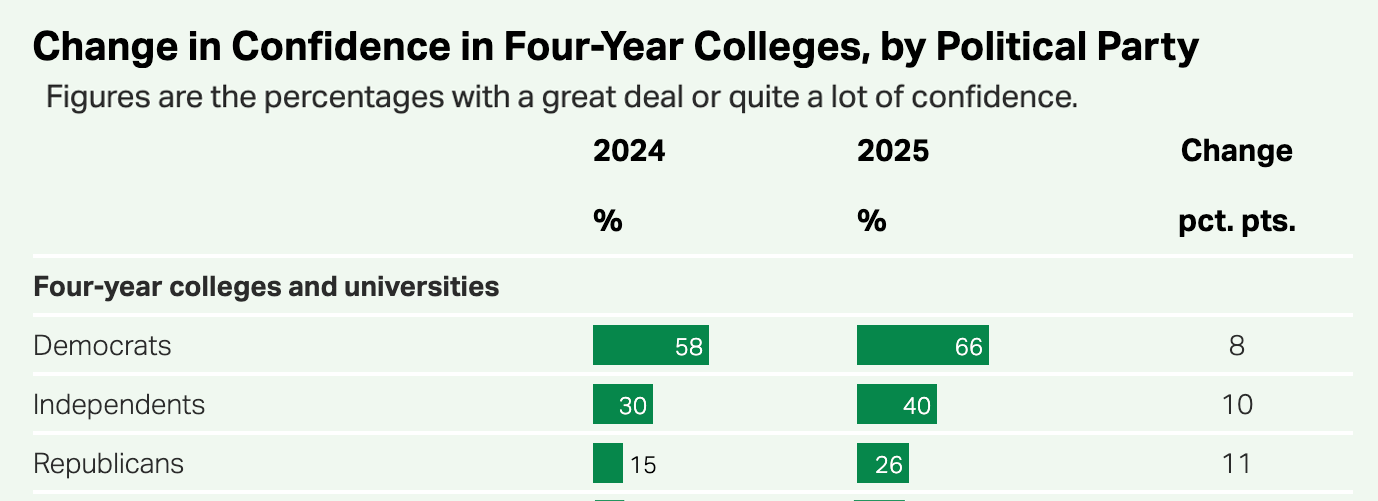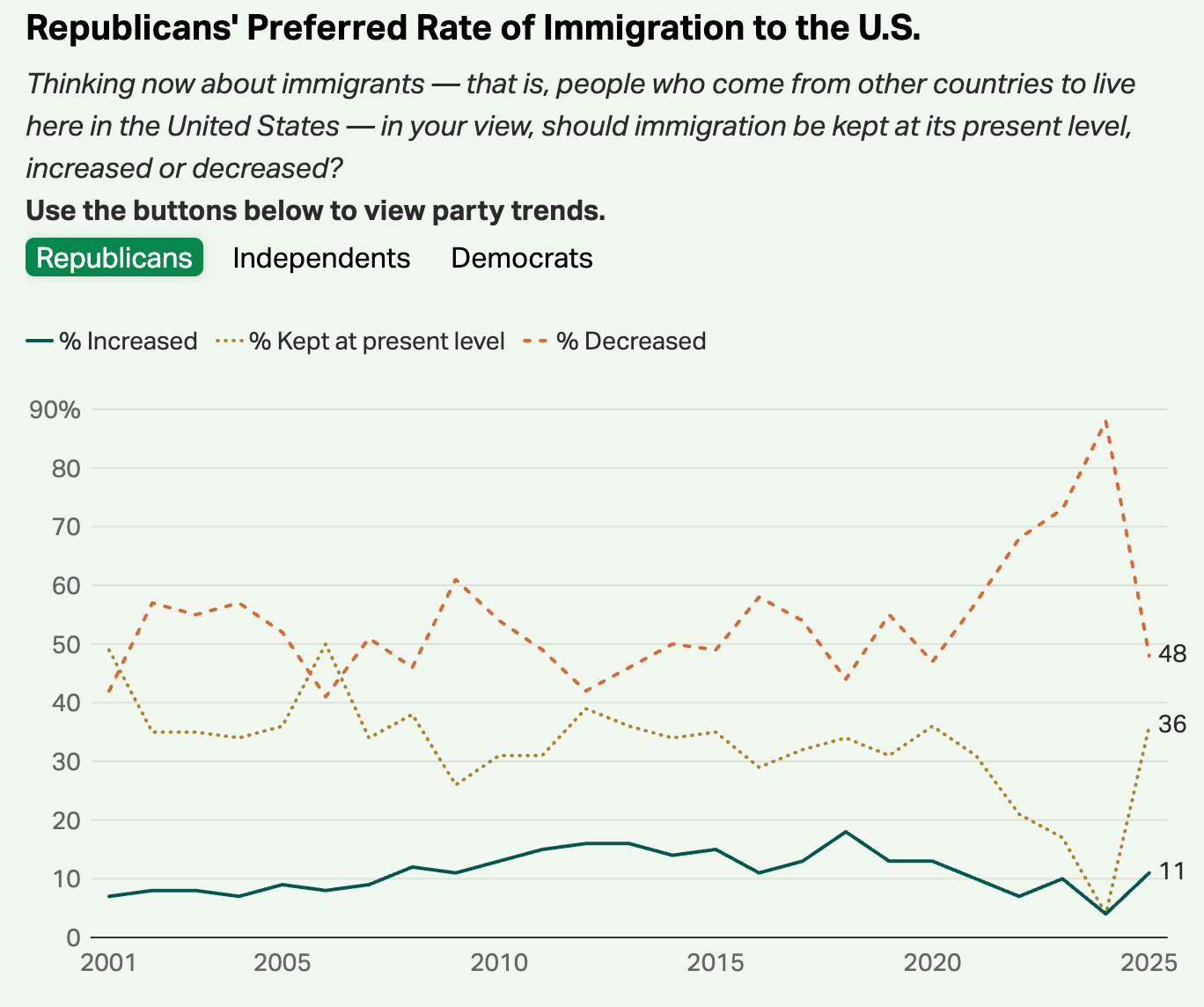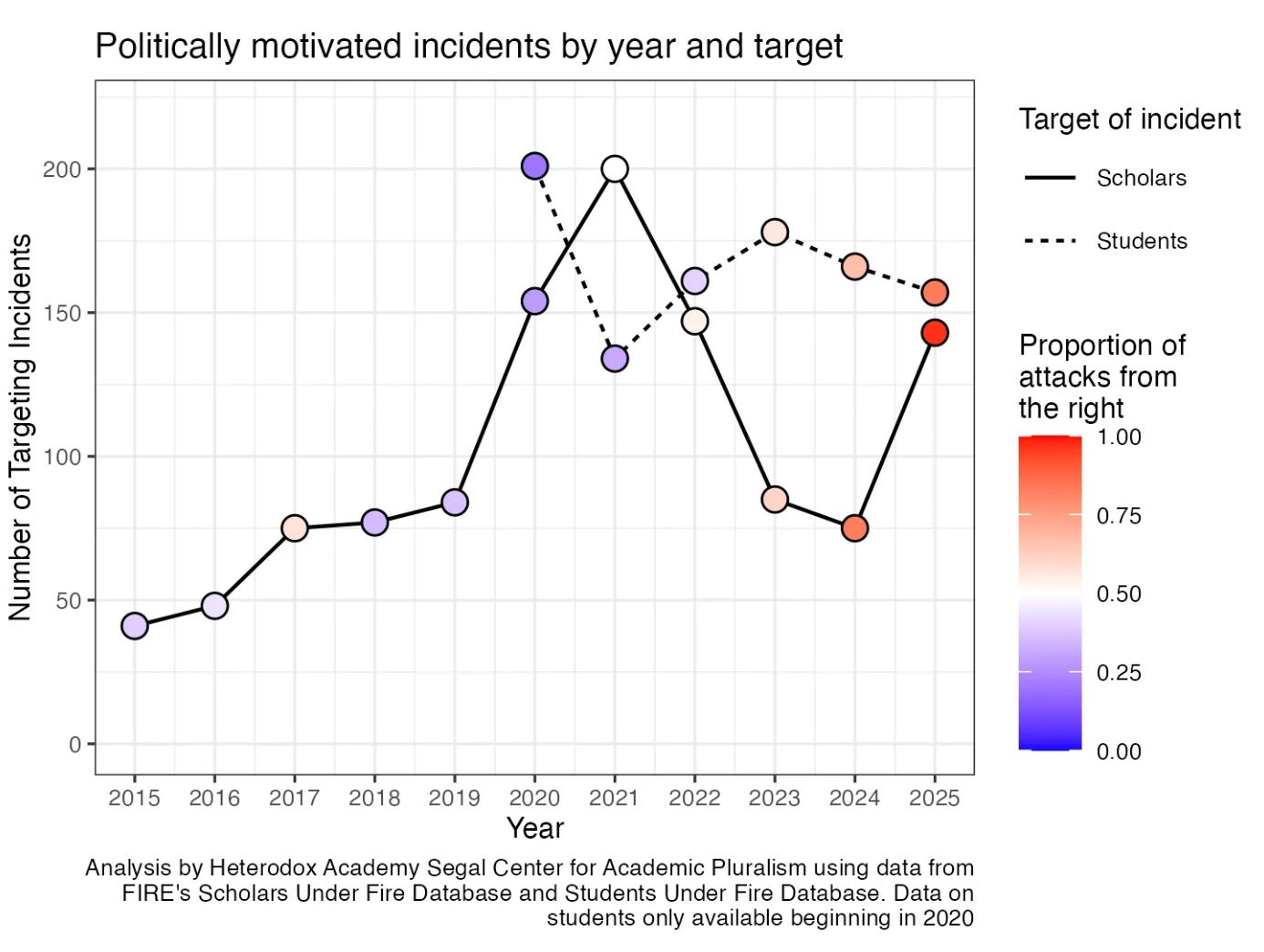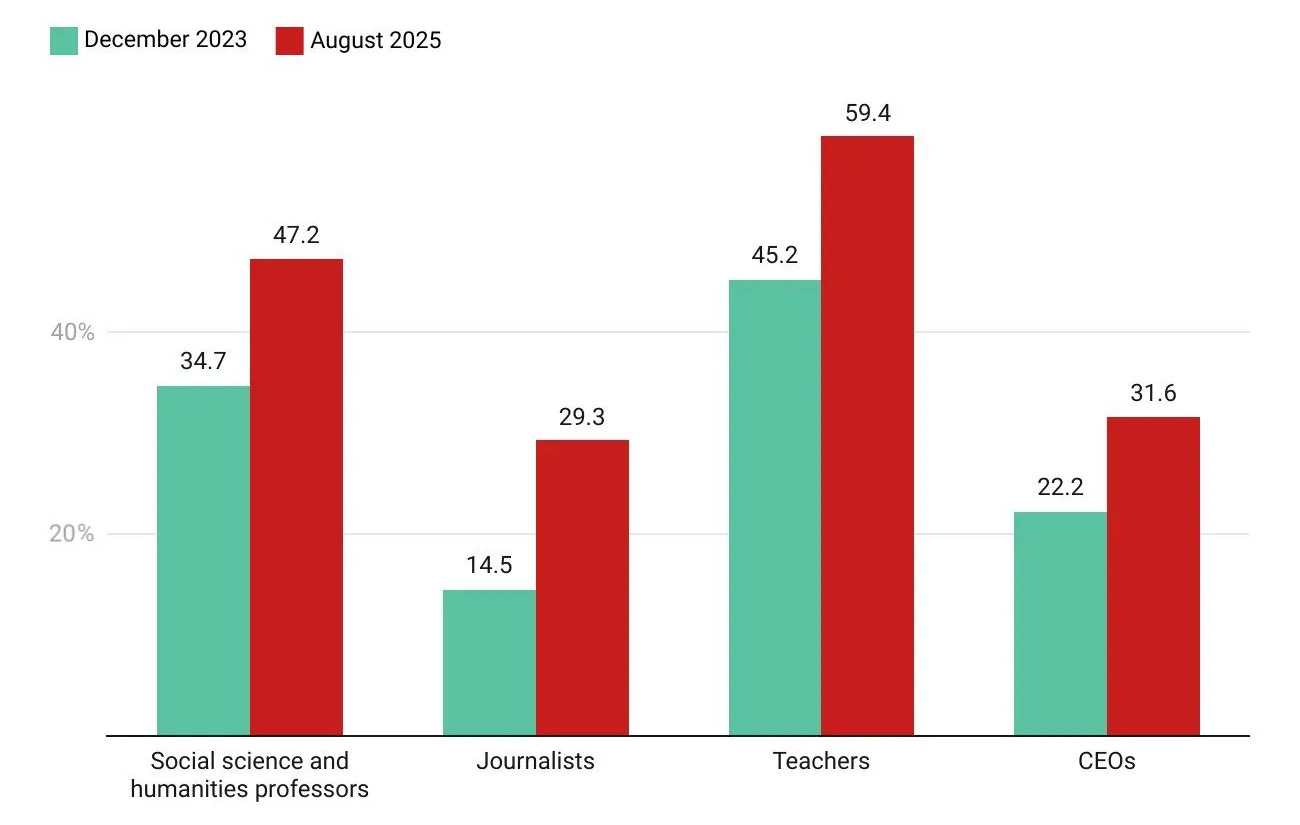The Pendulum Swings: Trust in Universities is Up
Support for immigration is also increasing, while attacks on speech shift from left to right - BCB 163
Action has a tendency to be met with reaction. In this week’s issue, we document three kinds of rapidly shifting sentiment: Trust in universities is increasing, support for immigration is increasing too, and campus censorship is now coming mostly from the right instead of the left.
Trust in universities is increasing
Amidst relentless pressure from the administration, American’s trust in universities is actually increasing. After falling for a decade, the percentage of those who said they had a “a great deal” or “quite a lot” of trust rose from 36% in 2024 to 42% in 2025.
In fact, it increased fastest among Republicans:

What is happening here? It seems like institutional trust in general may be rising, perhaps because Red now perceives that the government is now friendly to them. Eric Kaufmann ran a series of surveys to dig into this a little more:
To explore these questions further, I ran a new survey on the Prolific platform oversampling Trump voters. It repeated questions I asked in December 2023 about whether they trusted three liberal professions: social science and humanities (SSH) professors, journalists, and teachers. I also asked about their trust in universities more generally. This provides a fuller view of trends over time.
Prior to this year, Republicans mistrusted liberal institutions and professions. In 2021, the share of Trump voters trusting SSH professors was 34%. In late 2023, it was roughly the same. For journalists, the number was 15% in both years.
However, Trump’s often haphazard actions in office have changed the picture. As the graph below shows, Trump voters seem to have reacted by moving Leftwards. Trust in SSH professors has jumped from 35% to 47% over the past year, while trust in journalists and teachers is up 14 points. Faith in universities has also increased by 11 points.
Republican support for immigration is up
Another surprising fact is that, in the midst of mass deportations, support for increased immigration is actually increasing. In the last year, the percentage of Americans who want less immigration has dropped from 55% to 40% and the percentage who want more has increased from 16% to 24%.
Again, the change is most dramatic among Republicans. Last year 88% wanted less immigration, now only 48% do.

Although there are many individual stories of people who regret voting for Trump now that the reality of ICE’s enforcement actions has become clear, by and large Trump voters do not regret their choice. However, whether because the number of unauthorized migrants has fallen or because of ICE’s thuggish tactics, the border crisis no longer seems to be the pressing political issue it was just a year ago.
Attacks on campus speech switch from left to right
We have previously discussed how, for the last decade or so, most attempts to shut down speech and speakers on campus have come from the left. (There’s a perennial argument about whether Red or Blue censors more, and the answer depends on what you measure, but the left definitely reigned on campus).
But in the last few years, the incidents in FIRE’s database have switched to coming mostly from the right (look at the color of the dots, not the line chart):

However, we are still living in an era of left-leaning preference falsification on campus. That is, students are still mostly pretending to hold more progressive views than they actually do, according to ongoing surveys:
Between 2023 and 2025, we conducted 1,452 confidential interviews with undergraduates at Northwestern University and the University of Michigan. We were not studying politics — we were studying development. Our question was clinical, not political: “What happens to identity formation when belief is replaced by adherence to orthodoxy?”
We asked: Have you ever pretended to hold more progressive views than you truly endorse to succeed socially or academically? An astounding 88 percent said yes.
These students were not cynical, but adaptive. In a campus environment where grades, leadership, and peer belonging often hinge on fluency in performative morality, young adults quickly learn to rehearse what is safe.
This study covers the period both before and after Trump’s re-election, so it’s not clear what we can say about the current situation. But it seems likely that many students still do not feel able to say what they actually believe. This is an unstable situation. If this pent-up energy is not diffused — perhaps by dialing down the social pressure to present as progressive — canny political actors may be able to catalyze a rightward shift in student bodies.
Quote of the Week
Crazy how every day under the Democrats their White House account was just like “Happy Birthday to Idkaliali Moachim, the first Indigenous woman to have an abortion” and now under Trump we get deportation pixel art



